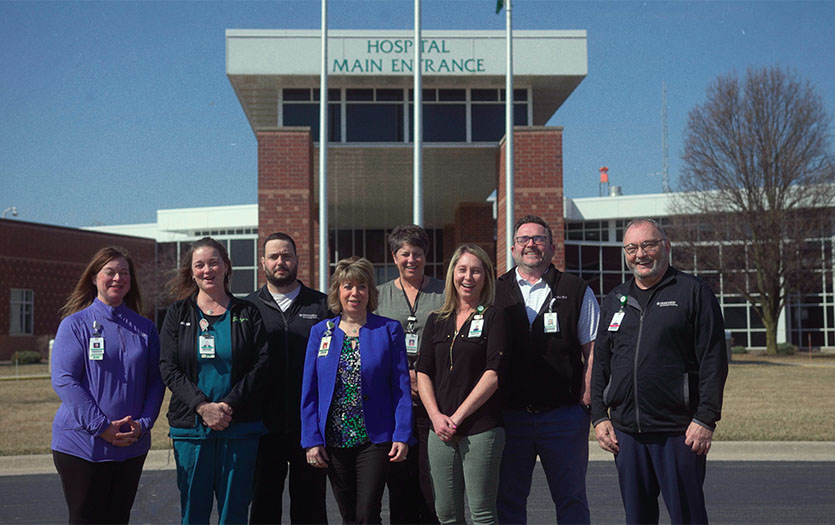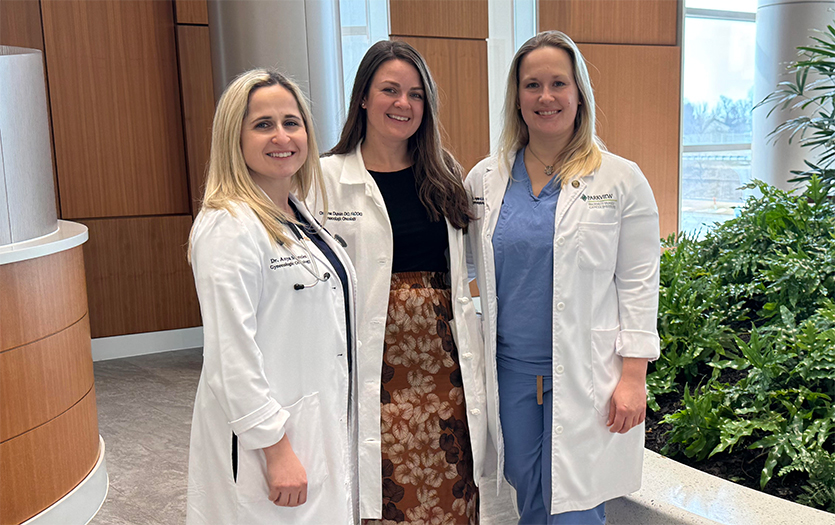
This post was written by Amber Skrtic, PharmD, CSP, AAHIVP, Parkview Health.
Imagine having severe headaches that last from hours to days, often accompanied by nausea, vomiting, and sensitivity to light and sound. These headaches, known as migraines, often happen 15 or more days each month to many chronic migraine sufferers. Knowing this, would you be able to go to work, play with your kids or go out with friends? Unfortunately, many people suffering from the recurrence of these debilitating headaches tend to miss out on daily activities, making their normal routine a challenge and significantly impacting their quality of life.
Making headway
Fortunately, in the last few years, a new class of medication has come to market for preventing migraines. These medications, Calcitonin Gene-Related Peptides (CGRPs), are typically given as a once-monthly injection to decrease migraine frequency and severity. These medications are quite effective, and when taking CGRPs, most people’s migraines decreased by about half. While this is a great improvement, it can still leave those suffering from several days that severely impact their standard of living.
Additionally, due to cost, administration and challenges with getting insurance approval, CGRPs are considered specialty medications and must get filled at a specialty pharmacy. Specialty pharmacy is a high-touch pharmacy model that provides patient support beyond dispensing medication. Specialty pharmacy typically helps with getting insurance approval for medicine, financial/copay assistance and patient education. It also provides home delivery, and checks with patients at regular intervals to assess effectiveness, side effects and assist anyone struggling with taking their medication.
The Parkview difference
Specialty pharmacy is in a unique position in that it influences patient care through regular, monthly touchpoints with an individual at each refill. If a patient is experiencing any difficulties with their medication, specialty pharmacy can quickly intervene to remove barriers and help ensure that the therapy is successful. At Parkview Specialty Pharmacy, our goal is to use this high-touch care model to impact patient outcomes positively.
A recent example involved a patient taking a CGRP for her migraines. She had been on therapy for approximately four months when our specialty pharmacist checked in with her. She was doing well. Her migraines had lessened (from before she started the CRGP), she had no side effects and she was taking each dose on schedule. However, the patient confessed to still experiencing migraines monthly. She described the medication as “wearing-off” about a week before she was due for her next dose. During this time, she would get migraines nearly every day, forced to skip social functions. After consulting with the patient, the pharmacist intervened and reached out to the prescriber, recommending a dose increase. The recommendation was accepted and led to the patient avoiding future monthly migraine headaches, allowing her to get back to her daily life and activities.
Analyzing our efforts
We recently analyzed how our high-touch model was impacting migraine patient outcomes. We looked back at 38 patients taking CGRPs for migraines over eight months. During that time, the specialty pharmacy intervened 29 times to assist patients encountering barriers ranging from side effects and adherence to effectiveness. We found that our patient-reported migraine days per month decreased by an average of 55% with these interventions. It also showed a correlation between specialty pharmacist interventions and reductions in the days that patients missed activities (work or social functions) due to migraines.
Final thoughts
This analysis highlights the role of specialty pharmacy in optimizing patient care. Through our services, we hope to help our patients achieve long-term success with their migraine therapies.



